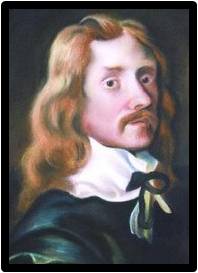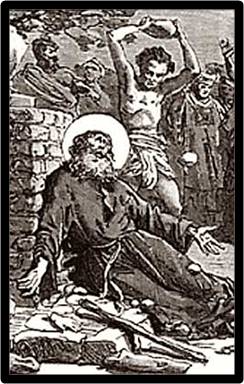OCTOBER 25 - BLESSED RICHARD GWYN

Richard was a non-Catholic Welshman (from Wales). He studied in Cambridge and when he had finished college he became a teacher. Then Richard adopted the Catholic faith and decided to join the priesthood.
After becoming a priest he was made the Chamberlain of his monastery. A few years later he was chosen to be the abbot of Glastonbury (which is similar to a Parish-Priest).
At this time Queen Elizabeth I ruled England and Wales. Because most people in Wales were still Catholic, the queen and her officials tried to crush the faith by cruel laws.
Priests or people who were loyal to the Holy Father - the Pope, were put in prison and many were tortured and killed.
Soon Richard became a hunted man. He escaped from jail once, and a month later was arrested again. They said to him, “You will be freed, if you give up the Catholic faith.” But Blessed Richard refused.
They took him to a non-Catholic church by force and he upset the preacher’s whole sermon by clanking his chains loudly. The angry officers locked him up for eight hours, and many came to abuse and insult him.
He was again put in prison and tortured. The queen’s men wanted him to give them the names of other Catholics whom they could arrest, but Richard would not.
When he was taken to court, men were paid to tell lies about him and he was sentenced to death. Then his wife and baby were brought to court.
“Do not imitate your husband,” the poor woman was told. She bravely said, “If you want more blood, you can take my life with my husband’s. If you give more money to your witnesses, they will definitely find something against me, too.”
As Blessed Richard was being martyred, he cried out in terrible pain: “Holy God, what is this? Jesus, have mercy on me!” Then he was beheaded.
Blessed Richard wrote some beautiful poems when he was in prison. In them, he begged his countrymen of Wales to be loyal to the Catholic faith. Blessed Richard died a martyr in 1539.



